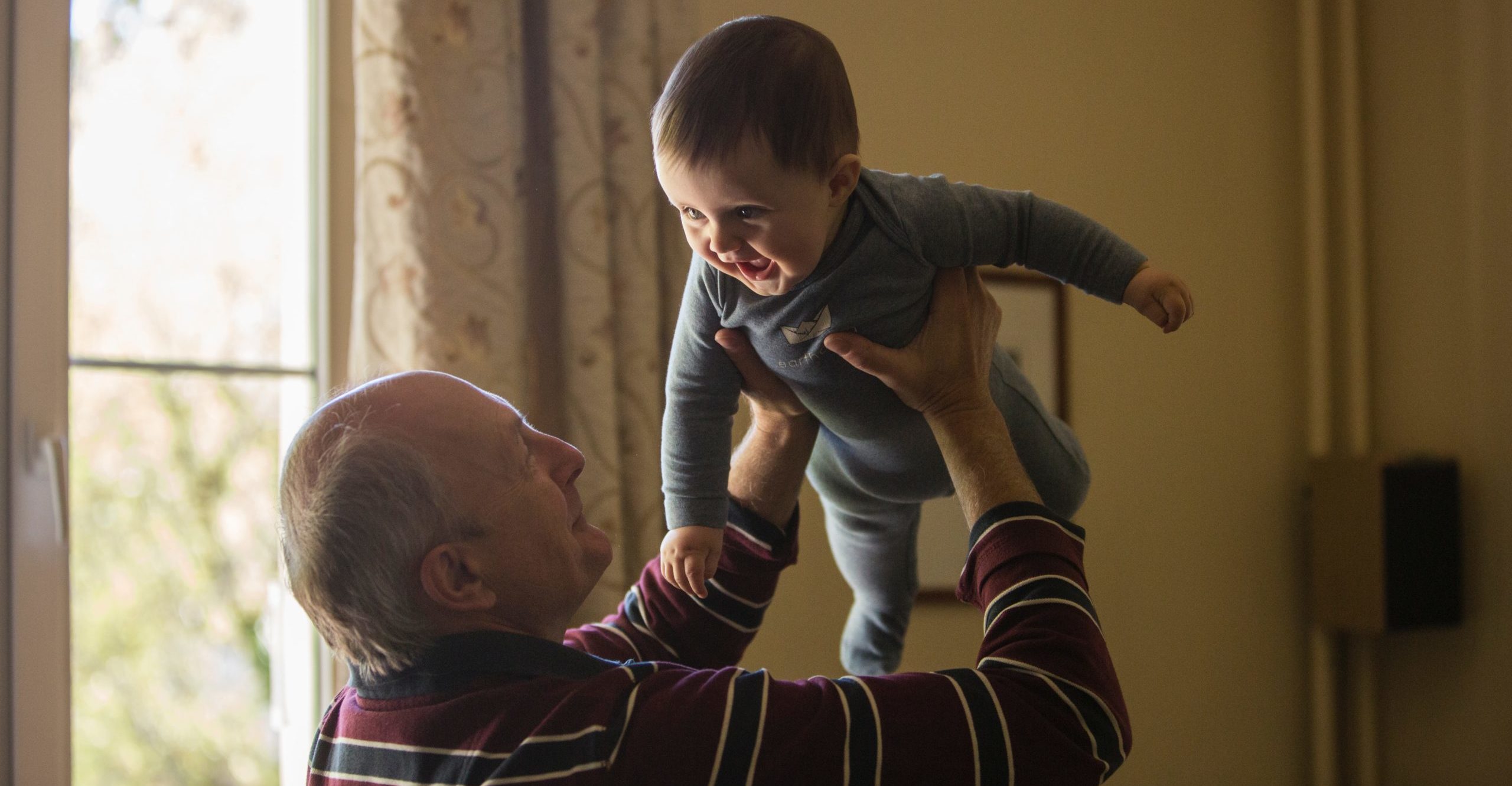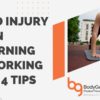September is Falls Prevention Awareness Month and Body Gears offers tips and services to help keep you upright as the weather gets colder.
For many, September is a time for rebalancing priorities, as families return from vacation, students head back to school, and projects ramp up around the house and office. It’s also the perfect time to reassess your physical balance and ensure you don’t become a statistic.
Did you know that more than half of all accidental deaths among the elderly are due to injuries sustained from falls?
The National Council on Aging reports that 35% of all senior Americans fall each year, making it the primary cause of elder injury. Falls are also expensive: in 2015, the total medical costs involving falls exceeded $50 billion, according to data compiled by the Centers for Disease Control and Prevention, including $12 billion in out-of-pocket costs.
What those numbers show is that falls are common and can be costly for you! However, that provides only a baseline understanding of just how important it can be to know your risks and be proactive in effectively managing your healthcare needs.
Falls During Lockdown
Numerous articles studying activity levels during lockdowns brought on by the COVID-19 pandemic repeatedly cite a significant reduction in activity levels, an increase in sedentary lifestyles, increased anxiety and increased depression across age groups and populations.
Our friends over at CORA Physical Therapy recently explored how the prolonged COVID-19 pandemic has increased risk for falls. The pandemic and sedentary lifestyle has had a profound impact on the activity levels for many demographics, limiting the opportunities to exercise freely.
With the general decrease in activity levels and deconditioning over the last two years, it is no surprise that a recent survey conducted by the National Poll on Healthy Aging showed that 25% of respondents aged 50-80 had a fall between March 2020 and January 2021, and 40% of those had fallen more than once during the same time period. The good news is you are much more in control of improving your balance than you might think.
Work with the Body Gears team of physical therapists to help identify your greatest fall risks and increase your stability as the seasons change.
Take a 360-Degree Assessment
Falls are the dangerous outcome of one or more risk factors in your life. While there are universal methods for prevention, there are also individual circumstances to consider, and it helps to understand how those factors interact in your situation.
Consider these checklist items and talk them through with the Body Gears team:
- Medications: Two common pharmaceutical side effects are dizziness and drowsiness, each of which can affect equilibrium. Blood pressure medication can be known to cause lightheadedness and disorientation, which can also impact balance.
- Eyesight: Vision is key to spotting obstacles before they become tripping hazards, and is an important factor in maintaining equilibrium. Get annual eye exams and update your eyeglasses prescriptions as recommended.
- Footwear: More than just a fashion statement, shoes play an important role in keeping you upright. Always wear well-fitting shoes with adequate support, both inside and outside of the house, and visit a foot specialist for concerns. Also, consider compression socks to improve circulation, comfort and overall health.
- Home Safety: Aging in place with dignity is possible, especially if you are willing to make modifications to your home. Stay independent longer by considering:
- More lighting with brighter bulbs, night lamps and motion sensors;
- Less clutter, cords, furniture and area rugs;
- More railings and grab bars in hallways, stairs, bathrooms and showers;
- More non-slip mats in bathtubs, shower floors and kitchen areas;
- Moving frequently used items to within easy reach on lower shelves.
Exercise and Balance Training
Improving your walking skills and your balance are interrelated challenges. Studies confirm that walking, water workouts and tai chi, when paired with flexibility and balance exercises, are very effective at improving balance and overall quality of life.
When was the last time you thought about your walking gait, stride, and overall muscle flexibility and balance? If it’s been a while, Body Gears can provide third-party feedback on areas for improvement as you get moving again.
Consider Vestibular Rehab
Like falls, dizziness and vertigo are the dangerous outcomes of one or more factors, including medication and physical conditions. To properly diagnose the cause of dizziness, work with a Body Gears physical therapist to see if the problem might originate in your inner ear.
Vestibular rehab specifically addresses inner ear disorders and starts with a comprehensive evaluation of your symptoms and situation. A physical therapist will test your reflexes, balance, leg strength, neck movements, cranial nerves, postures, and overall movement patterns. This analysis allows us to create a treatment plan individualized to you and your goals.
Coordination and balance exercises are usually a core component of vestibular rehab. These exercises are designed to give you confidence in your ability to move without falling or stumbling, while also decreasing the symptoms you experience during those movements.
Don’t Go It Alone
Falling can be a life-altering event, but the signs of risk often appear much earlier. Whether you’ve experienced episodes of imbalance or just want to take preventive measures, Body Gears has the team and resources you need to stay upright heading into the fall.
Contact us today at one of our six Chicagoland Body Gears centers to learn more about how we can help you get back to the things that matter most, like living a well-balanced life.
Tags: body gears, seniors, Falls Prevention






